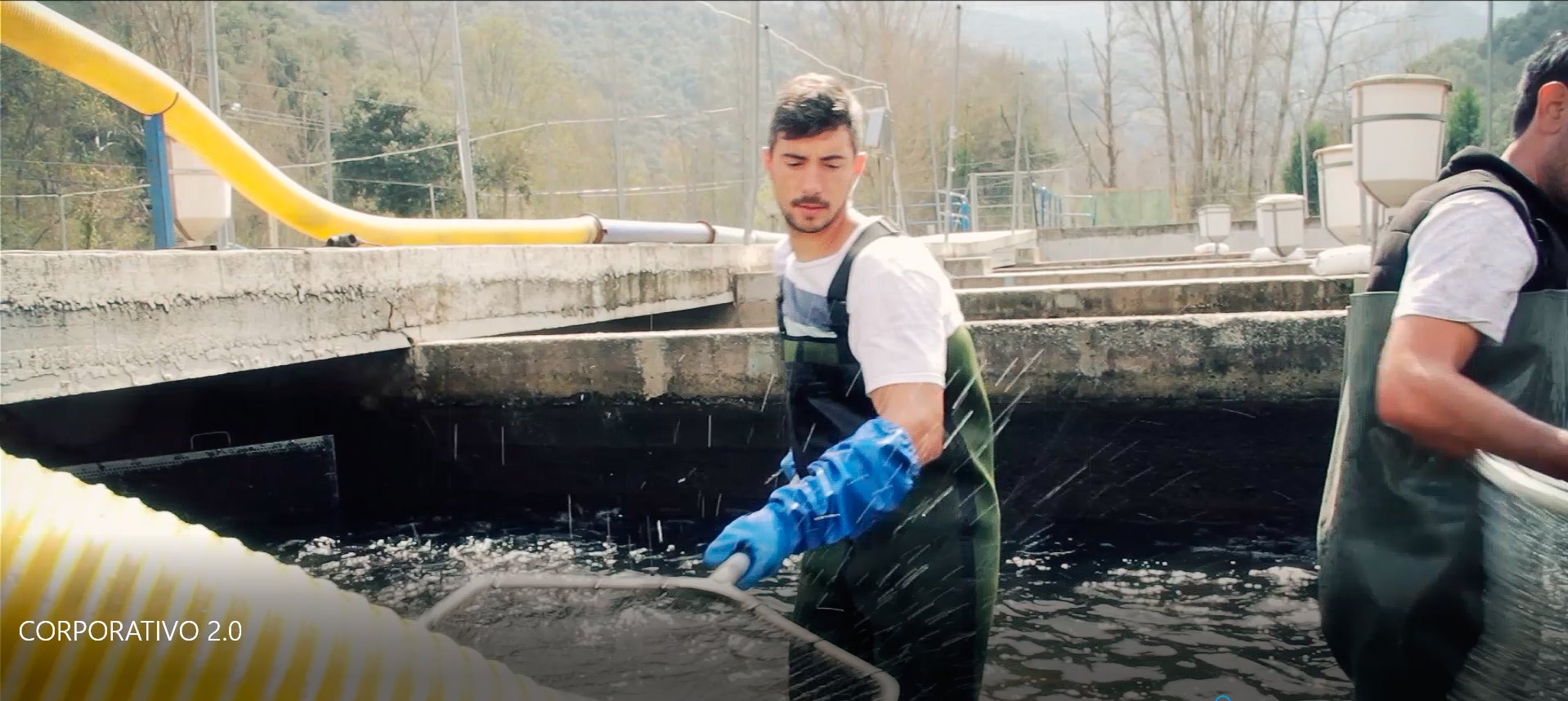Advantages of aquaculture over agriculture or extractive fisheries

18 January 2018
Aquaculture or fish farming in fish farms has always had very bad press, often due to ignorance of the process and other important information. It should be noted that with respect to the production of land-based farms, fish farming presents a series of advantages that we at RiverFresh defend and try to communicate to our consumers, so that they can share with us what this type of fish farming IS really about and demonstrate that it will guarantee the survival of our marine ecosystems.
Aquaculture VS Livestock Farming
- Less food is needed to generate one kilo of fish than to generate one kilo of any other land animal.
- Greater diversity of cultivated species versus land-based agriculture and livestock farming.
- It does not require the consumption of fresh water (not even in the case of freshwater fish farming, in which it is used but not consumed).
- Unlike cattle, fish do not produce greenhouse gases.
- Water covers three quarters of our planet. Aquaculture therefore has a great advantage over land-based production systems, where "soil" is limited and where there is great competition from different uses.
- It plays an increasingly important role in the protection of the environment and the preservation of natural spaces.
Fish Farming VS Extractive Fishing
- Guaranteed freshness.
- Regular supply unaffected by seasonality.
- Food and hygiene-health security through the permanent control and analysis of animals and their feeding, which are reflected in full traceability.
- Product quality, sustainability, satisfaction and stable prices.
- Reduced pressure on natural populations. Disappearance of discarding due to the fishing of individuals below the minimum size or species other than the target species.
- Greater control by administrations over the impact of the activity on the environment
"AQUACULTURE AS A GUARDIAN OF THE RIVERS AND SEAS"
Aquaculture depends, more than any other form of production, on its growing environment which, fortunately, also has a definitive influence on it, so the practice of responsible production is the only way to guarantee its own future.
